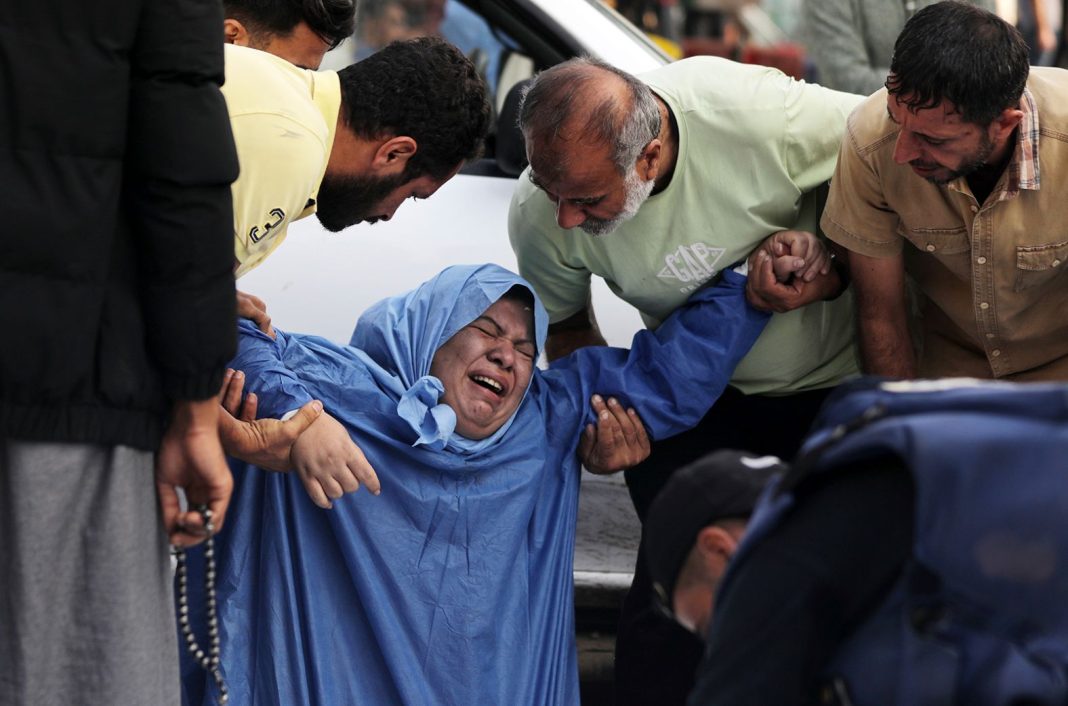“The state of Qatar and the Arab Republic of Egypt announce that they have received today a response from [Hamas] and the Palestinian factions regarding the most recent proposal for a ceasefire deal and the exchange of prisoners and detainees,” a statement from Qatar’s Ministry of Foreign Affairs read.
White House Spokesperson John Kirby stated the US had received the response Hamas delivered to the mediators, and that the US was “working its way” through it.
“The response prioritises the interests of the Palestinian people and emphasises the need for a complete halt to the ongoing aggression in Gaza,” Hamas and Islamic Jihad announced in a joint statement.
They added they were ready to “engage positively to reach an agreement that puts an end to this war”.
According to Reuters, Hamas’s response includes a counter-proposal for a new timeline for the permanent ceasefire and withdrawal of Israeli troops from Gaza.
Qatar said in its statement that it would study the response with Egypt and coordinate with the parties.
Hamas’s official response comes a day after the UN Security Council voted 14 to 0 in support of a US-backed resolution calling for a ceasefire in Gaza and hostage exchange.
The Palestinian group stated after the vote that it “welcomed” the resolution and expressed “readiness” to implement its principles through indirect talks with Israel.
US Secretary of State Antony Blinken stated Hamas’s statement was a “hopeful sign” but he continued to pressure the group, suggesting that the public comments didn’t amount to an official response delivered via mediators Qatar and Egypt.
“Everyone’s vote is in, except for one vote, and that’s Hamas,” Blinken added.
Blinken himself appeared to express frustration with Hamas’s decision-making process. The group’s top political officials are based outside Gaza, but the military leaders and head of the besieged enclave, Yahya Sinwar, are inside Gaza.
Analysts say Sinwar likely has the final say on a deal given his control of captives as necessary to start phase one of the staged ceasefire agreement and influence over fighters in the field.
Talks between Hamas and Israel have been ongoing for months.
Biden cast them into an unprecedented public view on 31 May, when he laid out the details of a three-phase agreement that he characterised as an Israeli proposal for a permanent cessation of hostilities in Gaza.
Despite an immediate positive response to Biden’s speech, the group soon expressed doubts about the deal.
Israeli Prime Minister Benjamin Netanyahu repeatedly rejected Biden’s suggestion that the deal would lead to an end of the war, stating that Israel would continue fighting in Gaza until it eliminates Hamas’s governing and military capabilities.
In response, Hamas sought written guarantees from mediators that a ceasefire would follow the hostage exchange.
Last week, Middle East Eye reported the latest Israeli proposal received by Hamas did not guarantee a permanent cessation of hostilities as described by Biden in his speech announcing the proposal.
The US’s move to put the ceasefire plan Biden verbally outlined in May to a vote at the UN Security Council appeared designed to force Hamas’s hand. Only Russia abstained from voting in favour of it.
